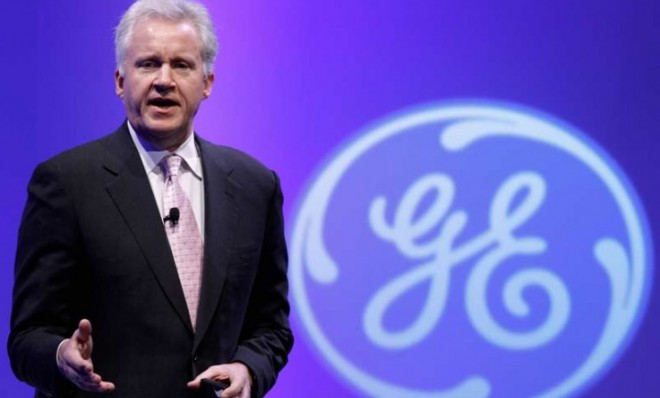How the high corporate tax rate pushes U.S. companies to stash their cash overseas
General Electric, Whirlpool, and other mega-companies are sitting on gigantic piles of money. And they're storing those piles in other countries


A free daily email with the biggest news stories of the day – and the best features from TheWeek.com
You are now subscribed
Your newsletter sign-up was successful
Amidst all the partisan rancor surrounding the fiscal cliff, there is one budgetary issue on which both Democrats and Republicans largely find themselves in agreement: The corporate tax rate is too damn high. At 35 percent, it is one of the highest corporate rates in the developed world, and President Obama has proposed reducing it to 28 percent as part of a larger overhaul of the tax code. Reform is widely considered necessary because the current set-up "presents the worst of all worlds," say Jia Lynn Yang and Suzy Khimm at The Washington Post. "Rates that are relatively high and tax receipts that are too low."
Why is tax revenue so low? Because the high rate has pushed America's largest corporations to park their cash overseas. "At a time when American companies hold near record amounts of cash, many are surprisingly cash-poor at home," says Kate Linebaugh at The Wall Street Journal.
How bad is it? According to the Journal, General Electric keeps only $30.7 billion of its $85.5 billion in cash reserves in the U.S.; Microsoft has $8.6 billion in the states, and a whopping $58 billion overseas; Whirlpool keeps 85 percent of its cash offshore; and Johnson & Johnson has socked all of its $24.5 billion in other countries.
The Week
Escape your echo chamber. Get the facts behind the news, plus analysis from multiple perspectives.

Sign up for The Week's Free Newsletters
From our morning news briefing to a weekly Good News Newsletter, get the best of The Week delivered directly to your inbox.
From our morning news briefing to a weekly Good News Newsletter, get the best of The Week delivered directly to your inbox.
A lack of funds in America has forced companies to borrow money to do business in the U.S., such as paying dividends, buying back shares, repaying debts, and contributing to worker pensions. Government regulators are reportedly concerned that companies are more debt-laden than their strong balance sheets would suggest, while companies claim that a lower rate would allow them to invest more in the U.S. and create more jobs.
While there is general agreement that the corporate tax code has to be reformed, there are big differences in how Republicans and Democrats want to approach the problem. Obama has proposed reducing the corporate tax rate at home, while also implementing a "global minimum tax" that would require multinational corporations to make up the difference between lower, foreign tax rates and the U.S. rate. Under such a scheme, corporations would effectively pay the same tax rate no matter where they made their money, which would theoretically encourage them to bring their operations and cash back to the U.S.
On the other hand, many companies, supported by advocacy groups like the Chamber of Commerce, have proposed creating what's known as a "territorial tax system," in which taxes on foreign income are eliminated entirely. They argue that this would allow them to repatriate all their money back to the U.S. Furthermore, many other countries, such as Japan, use some form of a territorial tax system, which means foreign companies often pay less in taxes when they invest overseas, giving them an advantage over American companies in the global marketplace.
A territorial tax system has many supporters in the Republican Party, but the GOP has so far provided few details on how such a system would work in practice. Tax analysts say eliminating taxes on foreign income completely "would blow a hole in tax revenue, give multinationals more leeway to exploit tax havens, and drive jobs overseas," say Yang and Khimm. However, keeping some safeguards in place — such as Japan's policy of taxing companies for income made in countries where the tax rate is below 20 percent — could protect American workers while boosting tax revenue for the U.S. government.
A free daily email with the biggest news stories of the day – and the best features from TheWeek.com
Ryu Spaeth is deputy editor at TheWeek.com. Follow him on Twitter.
-
 Local elections 2026: where are they and who is expected to win?
Local elections 2026: where are they and who is expected to win?The Explainer Labour is braced for heavy losses and U-turn on postponing some council elections hasn’t helped the party’s prospects
-
 6 of the world’s most accessible destinations
6 of the world’s most accessible destinationsThe Week Recommends Experience all of Berlin, Singapore and Sydney
-
 How the FCC’s ‘equal time’ rule works
How the FCC’s ‘equal time’ rule worksIn the Spotlight The law is at the heart of the Colbert-CBS conflict